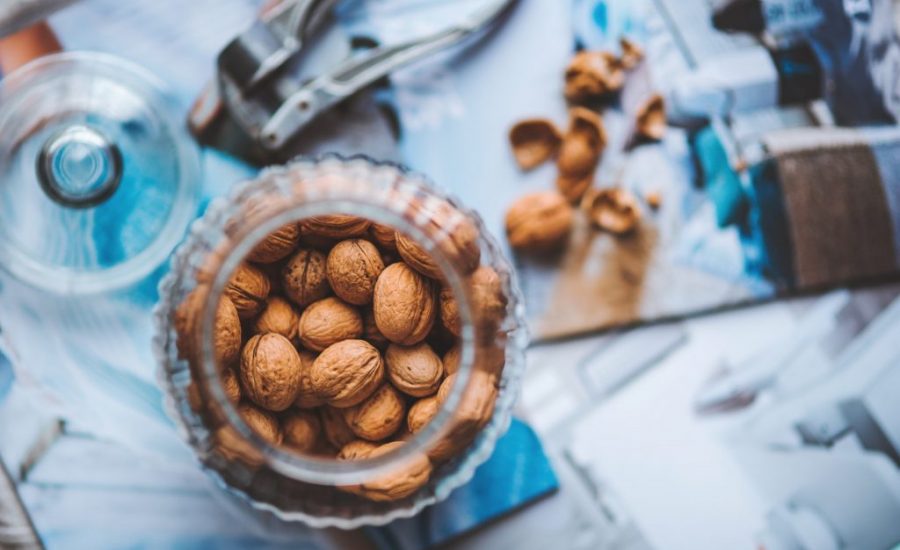Heat generating foods are important to maintain the balance in our bodies during winter. Heat generating foods are also helpful when someone is suffering from cold or flu.
With the onset of winter season there is a gradual decrease in temperature. Temperature of the body also decreases due to change in environment. The body needs to be kept at a suitable temperature so that there is no change in body functions. As in summers it is necessary to intake maximum water to avoid dehydration, in winters we need to take foods that generate heat in our body so that the functions of body go on smoothly.
In winters the shift is from cold to heat generating foods. Listed below are some heat generating foods which must be included in our daily diet in winters.
Nuts
Nuts are believed to provide nutrition to the brain. They keep the brain hydrated and all the bodily functions go on without any hindrance. It is advisable to have a handful of nuts during the day. It was believed that nuts cause weight gain but this myth is discarded by the dietitians as they have varied benefits which prolong the age of an individual.
The benefits of nuts are as follows:
- They prolong the age of an individual.
- They lower cholesterol formation as a result it is beneficial for a healthy heart.
- They are a good source of vitamin E, copper and magnesium. Apart from this they are a good source of calcium too.
- In Indian households the nuts are taken in various forms- raw, roasted and in powdered form. It can be included in your food in any form.
- Dry fruits are taken in the form of laddoos, gajak til Patti which are basically nuts cooked in sugar or jaggery syrup. The famous one is chikki which is a groundnuts in jaggery or sugar syrup.
Vegetables
Come winter and the market is flooded with a rich produce of green and multicolored vegetables. Leafy vegetables like mustard/sarson, spinach, amaranthus, fenugreek, coriander, mint etc are available in this season.
Green leafy veggies are commonly taken as saag in Indian households. In the northern parts it is actually taken in the form of saag which is a preparation consisting of a combination of various leaves like mustard, spinach, gram bathua, fenugreek etc. It is a spicy preparation and provides energy to the body. The leafy vegetables which are full of fiber, prevent constipation and also maintain blood pressure. The leafy veggies can also be prepared in dry form as aloo methi or spinach potato or can be cooked with lentils. Tomato soup and other soups can be enjoyed sitting tucked in a warm blanket. Vegetables like red carrots, turnip, green peas and beetroot are a common sight in the markets. It is always said that we should eat according to seasons produce. Also, root vegetables are good heat producing foods too.
Today irrespective of the season, the veggies are available throughout the year, but they prove beneficial in the time of their natural production
Honey
Honey is an important item which increases the immunity of a person. Due to its diverse health benefits it is an important component of Ayurveda. It has various benefits which are as follows:
- helps in weight loss
- A spoon of honey mixed in warm water if taken regularly aids in weight loss.
- cures cold and cough
- Improves eyesight too.
- it is antifungal and anti-bacterial in nature so helps in healing wounds faster.
- helps in regulating blood sugar in the body hence aids in a healthy heart.
In the winter season it is likely that a person might suffer cold and cough due to changes in temperature. A valuable home remedy to keep cold and cough at bay is to mix equal quantities of ginger juice and honey and take it. Even today we stack our pantry with honey and ginger during all seasons.
Whole grains
Grains like maize ragi, bajra and jowar are said to be beneficial for a human body during the winters.
In rural india and mostly northern parts we find that makki ki roti and sarson ka saag, jowar bhakri, bajra khichdi bajra laapsi, ragi rice flour etc are included in daily diet during winters. Wheat flour is replaced by millet flours in most of the cases. This is due to the fact that they provide energy and also are warm in nature.
They are rich source of calcium and other minerals and a store house of proteins and amino acids. Highly rich in zinc magnesium iron and potassium they aid in keeping the body healthy and disease free.
Murabba
It is highly recommended that murabbas of different fruits like amla and apple are highly beneficial for providing heat to the body. As they increase the immunity of the body it is highly recommended that a spoon full of murabba or chyawanprash along with a glass of milk keeps the body healthy and strong during winters. Chyawanprash is available in the market and murabbas can be made at home or purchased from the market.
Winter is a season in which we become sedentary because of the coldness outside. It is advisable to eat light foods at regular intervals. One more suggestion is drink warm water. It keeps body warm and also aids in weight loss.Apart from food we should take extra care to cover up our body with essential woolen clothes. As a variety of produce is available do enjoy the joy of cooking and preparing new dishes and share your food pictures with us . Happy winter and happy cooking everyone.



No comments yet.